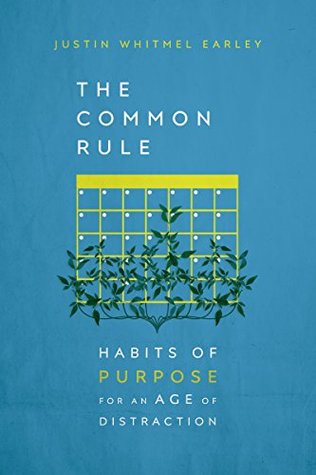More on this book
Community
Kindle Notes & Highlights
Started reading
December 7, 2019
Only in retrospect did I realize that, while the house of my life was decorated with Christian content, the architecture of my habits was just like everyone else’s.
My head said one thing, that God loves me no matter what I do, but my habits said another, that I’d better keep striving in order to stay loved.
keystone habit—a micro shift that brings about macro effects.
We are all living according to a specific regimen of habits, and those habits shape most of our life.
“when a habit is formed, the brain stops fully participating in decision making. The patterns we have unfold automatically.”
We may know that something is unhealthy or wrong. We may know exactly why it’s bad or undesirable. We can tell ourselves that over and over, but that part of our brain is exactly the part that gets shut out when the autopilot of habit turns on.
Education is what you learn and know—things you are taught. Formation is what you practice and do—things that are caught.
A liturgy is a pattern of words or actions repeated regularly as a way of worship.
the only difference is that a liturgy admits that it’s an act of worship.
We think that by rejecting any limits on our habits, we remain free to choose. Actually, by barraging ourselves with so many choices, we get so decision-fatigued that we’re unable to choose anything well.
But what if the good life doesn’t come from having the ability to do what we want but from having the ability to do what we were made for? What if true freedom comes from choosing the right limitations, not avoiding all limitations?
I had lived my whole life thinking that all limits ruin freedom, when all along it’s been the opposite: the right limits create freedom.
All those who want to be attentive to who they are becoming must realize that formation begins with a framework of habits.
You can’t believe truth without practicing truth, and vice versa.
Only when your habits are constructed to match your worldview do you become someone who doesn’t just know about God and neighbor but someone who actually loves God and neighbor.
We have a common problem. By ignoring the ways habits shape us, we’ve assimilated to a hidden rule of life: the American rule of life. This rigorous program of habits forms us in all the anxiety, depression, consumerism, injustice, and vanity that are so typical in the contemporary American life.
Paying all our spiritual attention to the message of Jesus while ignoring his practices has not only led people like me into devastating life crises, it has also created a country of Christians whose practical lives are divorced from their actual faith.
How else do we explain a country of Christians who preach a radical gospel of Jesus while assimilating to the ...
This highlight has been truncated due to consecutive passage length restrictions.


